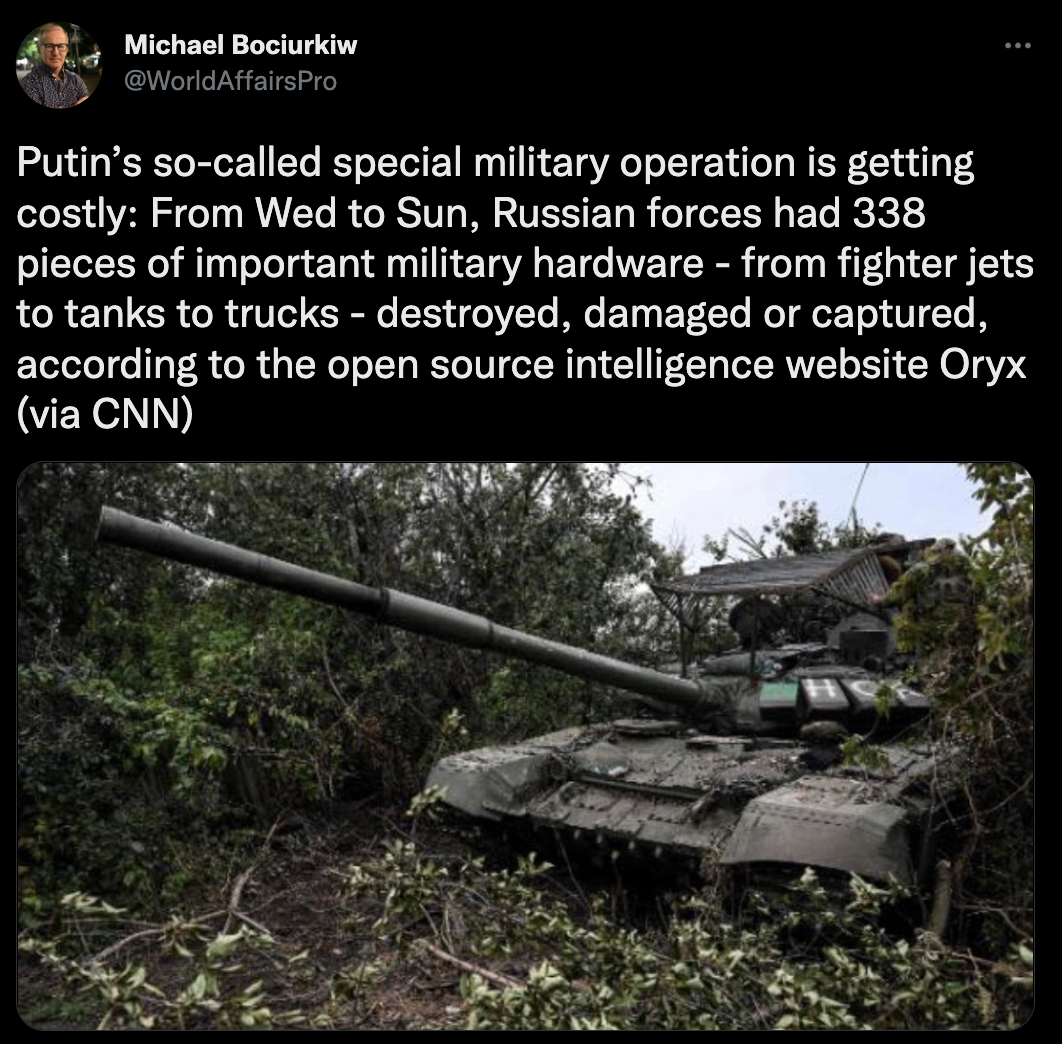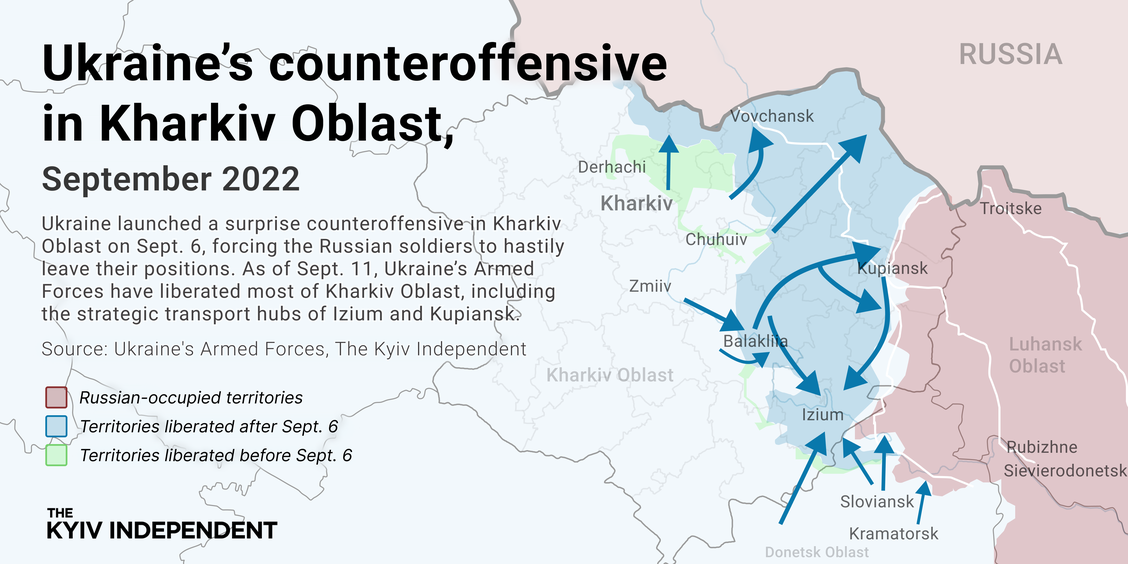WAR IN UKRAINE: September 14, 2022
Derhachi District Mayor Vyacheslav Zadorenko, with a group of Ukrainian soldiers, rips a Russian flag in Kozacha Lopan in the Kharkiv region on September 12.
LATEST DEVELOPMENTS: Day 203
Ukrainian government officials are asking the US for additional weapons systems and ammunition amid a significant counteroffensive that has successfully pushed Russia out of key cities in northeast Ukraine. Against the backdrop of this fresh momentum, Ukrainian officials told US lawmakers that the Ukrainian military needs new equipment to sustain the push. Specifically, they say they need long-range Army Tactical Missile Systems, known as ATACMS, which have a range of up to 180 miles, reported CNN. However, the US has been reluctant to provide the ATACMS because they could be used to fire into Russian territory and potentially escalate the conflict further. According to top Ukrainian generals, Ukraine is at a disadvantage because the Russians have rockets with a range of 1,200 miles, whereas the Ukrainians’ systems have a maximum range of 60 miles.
Ukrainian authorities have detained an unspecified number of Russian teachers who moved to Ukrainian towns and cities after Russia took control of them after launching its invasion in late February.
The Russian military has increased its fleet in the Black Sea to 16 vessels - including five missile carriers, one submarine and three large amphibious ships on standby, Meanwhile explosions were heard in Kherson and Mykolaiv Tuesday, and Kharkiv and the wider region remain without power due to Russian missile strikes - Suspilne/Suspilne Odesa
German Chancellor Olaf Scholz has urged Russian President Vladimir Putin to find a diplomatic solution for the conflict in Ukraine based on a cease-fire and the complete withdrawal of Russian troops. Earlier, Ukrainian Foreign Minister Dmytro Kuleba had slammed Germany for refusing to provide it with Leopard tanks and Marder infantry fighting vehicles it has asked for - RFE/RL
China's leader Xi Jinping and Russia's Vladimir Putin will discuss the war in Ukraine and other "international and regional topics" at their meeting in Uzbekistan later this week, the Kremlin says. However the situation for Mr. Putin has shifted dramatically since the last time he saw Xi at the Beijing Olympics and just before the start of the war. Analysts say that after recent humiliating setbacks by Russia on the battlefield, Xi will have the upper hand in terms of dictating competing spheres of interest, energy and the like. During the so-called coup in Kazakhstan early this year it was Xi, who’s country’s has vast and overlapping energy interests with Russia, who is believed to have dictated the length and scope of Russia’s intervention. It is worth noting that China’s supreme leader is kicking off his three-day visit to Central Asia in Kazakhstan, where he landed in the capital Nursultan for the first leg of his trip on Wednesday. While the two leaders have previously said the friendship between their countries had "no limits,” it is doubtful Beijing will offer Russia meaningful weaponry for its military operations in Ukraine - leaving a desperate Putin to turn to rogue states such as North Korea.
In north-eastern Ukraine, a counter-offensive has seen the nation's forces recapture swathes of territory, and drive out Russian troops. But in the newly-liberated areas, relief and sorrow are intertwined - as accounts emerge of torture and killings during the long months of Russian occupation. Read the full BBC report here
The Ukrainian military's routing of Russian forces over the past week has highlighted both the fighting capabilities of Ukraine's military and the effectiveness of the Western military aid provided to date. Yet, Washington analysts and lobbyists say that little is likely to change in the short term -- largely because of persistent fears of provoking a Russian escalation. Kyiv's success could even stymie efforts to supply more powerful weapons and ammunition, such as guided missiles with a range of 300 kilometers, they say. "The same cautious tendencies we've seen in the Biden administration and, of course, even more in European capitals like Berlin and Paris, continue," John Herbst, the former U.S. ambassador to Ukraine in 2003-06 who is now the senior director of the Atlantic Council's Eurasia Center, told RFE/RL following a recent trip to Kyiv. "I have no doubt that some of the 'less resolute voices' in all those places will point to this success as a reason to explain why Ukraine does not need more aid."


